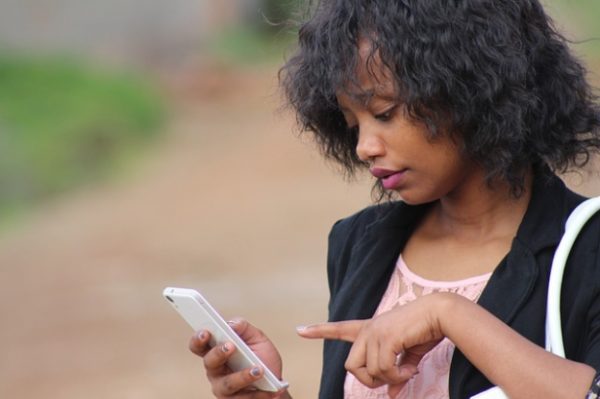
GHANA: HOW GHANAIANS ARE SAVING, BORROWING AND EARNING MONEY USING THEIR MOBILE PHONES
Ghanaians are now saving, borrowing and earning money using their mobile phones, as a result of the popularity of Mobile Money. If you are in Ghana and you have a mobile phone, you now have an opportunity to save more money, earn extra money, and even borrow without going to the bank.
Mobile Money (a digital financial service) is offering people the opportunity to store, send, and receive money on their mobile phones without having a bank account. As a result, those in the hard-to- reach rural areas with no banks, are now being financially included, and are enjoying the benefits of financial services. High usage of mobile phones has made the use of Mobile Money very popular. Also, with the support from the Ghanaian Central Bank, its use has greatly expanded.
The Ghanaian Central Bank saw this as an opportunity to increase financial inclusion and introduced favorable e-money regulations that helped boost Ghana’s Mobile Money success.
TRANSACTIONS WITH MOBILE MONEY
1 in 5 Ghanaians are using Mobile Money services to send and receive money on their mobile phones. MTN Mobile money, Airtel Money, Togo Cash, and Vodafone Cash are some examples. With tap and pay services, Airtel telephone company offers contactless payments via Mobile Money. This is increasingly popular in the payment of utility bills, shopping, and school fees payment.
Mobile Money is widely used for international remittances allowing people to receive transfers directly into their accounts.
SAVINGS AND LOANS WITH MOBILE MONEY
Users do not have to spend or transfer out all the money they have in their accounts. They can store or save it! So, without bank accounts, one can easily save on Mobile Money.
The most interesting thing about using Mobile Money for savings is that with approval of the Central Bank, users can earn interest on the amount of money they stored/saved in their accounts.
New Central Bank regulation allows customers to receive between 1.5 percent to 7 percent every three months on the balances saved on their account
Customers to receive between 1.5% – 7% every 3 months on Mobile Money balances.
Customers are also now able to access loan using Mobile Money. With Money Bosea, a micro loan product launched by Airtel, customers can instantly borrow up to 200 Ghanaian Cedi. However, customers have up to one month to pay this loan back through deductions from their Airtel Mobile Money accounts.
With Airtel Money Bosea, customers can instantly borrow up to 200 Ghanaian Cedi.
BANKS ARE WAKING UP!
The increasing popularity of Mobile Money has left banks with no choice than to partner with the telephone companies. They see this as an opportunity to tap into this huge market with increasing customer base. Banks such as Fidelity Bank are beginning to offer savings products to mobile phone users.
Easy Investing with Mobile Money
For those who do not know how or where to start investing, Mobile Money offers opportunity to easily invest using mobile phones. The Ecobank Ghana now allows its customers to buy government Treasury Bills using their phones. However, not all banks have this feature.
Ecobank Ghana now allows its customers to buy government Treasury Bills using their phones.
In simple terms, when you buy government treasury bills, (also called T-bills) you are basically lending money to the government, for a term of one year or less. The loan certificate you received showing how much you lent to the government is called the T-bill. T-bills do not pay interest; rather, you buy it at a discount. The difference therefore is what you earn as interest. Here is an example:
Assuming the government wants to raise 1000 Ghana Cedi, it will sell a 6-month T-bill valued at 1000 Ghana Cedi for 900 Ghana Cedi. The value of the T-bill will still be 1000 Ghana Cedi, but you pay 900 and receive the T-bill. After 6 months, the government will pay you back the value of the T-Bill which is 1000 Ghana Cedi. The difference of 100 Ghana Cedi is what you earn as interest.
WHAT DOES THE SURGE OF MOBILE MONEY MEAN FOR GHANAIANS?
Millions of unbanked Ghanaians (with no bank accounts, or access to financial services) no longer have excuses for not saving. With a mobile phone, they have financial services on their palms. Are you in Ghana? take advantage of this opportunity and take charge of your finances! A record number of Ghanaians are saving with this tool and you should too.
Banks are beginning to tap into this market. This means that more products that cater for the needs of hard-to-reach areas are beginning to be developed.
Thanks to Mobile Money, more people are now being financially included even when they do not use formal financial services.
What do you think about Mobile Money? Do you consider it beneficial? Please share your thoughts.
Sources: www.bloomberg.com | www.africanbusinessreview.co.za

If I want to invest 100 for six months what will be my interest?
If I save 1000gh after six months how much will be the intrest